
Doubled Pawns
Many adjectives are used in chess to describe a pawn: strong, weak, isolated, passed, backward, doubled and more. So, what is a doubled pawn? Let's find out!
Here is what you need to know about doubled pawns:
What Are Doubled Pawns?
Among the important terms to describe the types of pawns is doubled pawns, which are two pawns on the same file (for one side). Doubled pawns occur when a pawn captures an enemy piece and ends on the same file as a friendly pawn. In general, doubled pawns are considered a structural weakness, but sometimes the creation of doubled pawns can be beneficial.
In the following position from the Ruy Lopez Exchange variation, White has just played 4.Bxc6, and Black has replied with 4...dxc6—these moves result in doubling Black's pawns on the c-file.
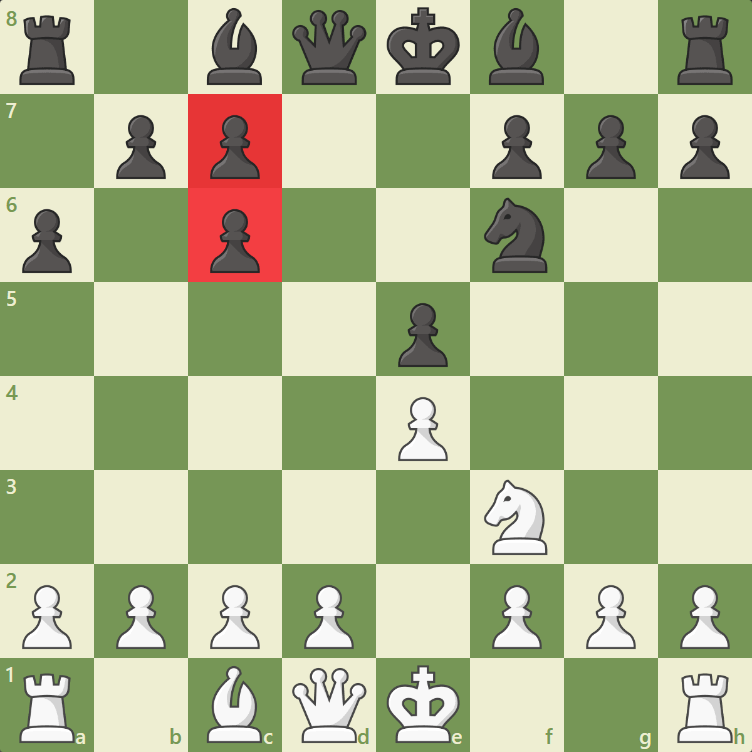
Black's doubled c-pawns are still protected, and the capture with 4...dxc6 has opened a path for Black's light-squared bishop. Black has also gained the bishop pair with this exchange, which brings us to an important point: if you are going to accept doubled pawns, you should try to get something in return.
As mentioned, doubled pawns are usually considered a weakness. In the following position from the Nimzo-Indian Saemisch variation, White has doubled c-pawns in exchange for the bishop pair. However, White's doubled c-pawns can potentially be targets of future attacks—specifically the c4-pawn:
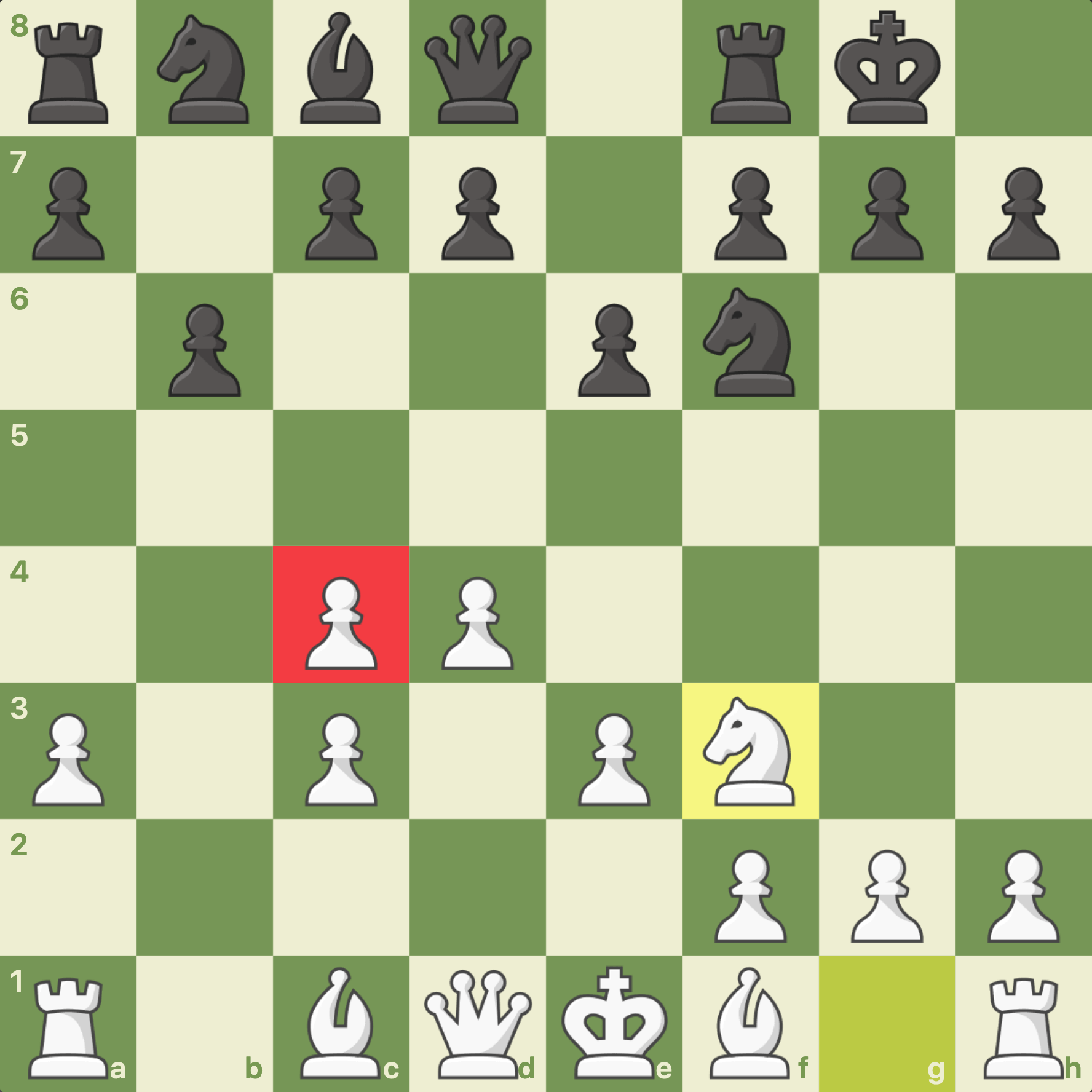
The c4-pawn above is weak because it cannot be protected by a pawn on the square b3 or d3. The same principle of doubled pawns applies if more than one pawn for a side is on the same file. In the following position, Black has just played exf5 and now has tripled (and isolated) f-pawns. These tripled and isolated f-pawns will be a liability for the rest of the game, as they are both easy to attack and difficult to defend.
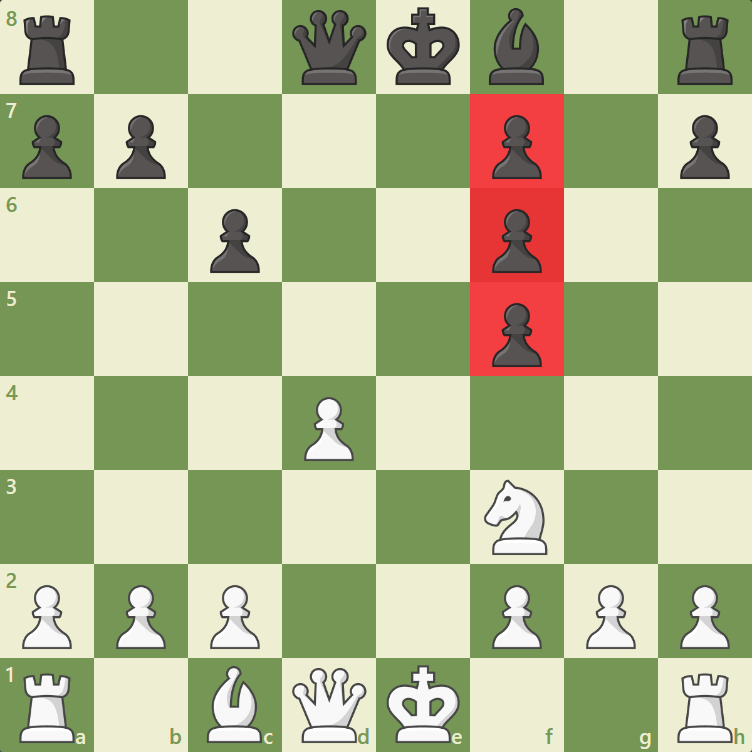
Now that you know what doubled pawns are, let's find out why they are important.
Why Are Doubled Pawns Important?
Doubled pawns are important because they usually define the pawn structure and thus play a large part in how both sides plan. In fact, there are several opening variations based on giving an opponent doubled pawns (like the Ruy Lopez exchange variation, the Nimzo-Indian Defense, the Trompowsky Attack, and more). In the previous example of the Nimzo-Indian Defense, White has a weak c4-pawn:

The doubled pawns for White shape the plans for both sides. Black would like to attack and potentially win the c4-pawn. After a couple of natural moves from both sides, we can see this plan in action:

After some simple moves by Black (Nc6, Na5, and Ba6) and White (Bd3 and 0-0), we can see that the c4-pawn is in trouble. This example shows how the existence of doubled pawns can guide and shape plans, and in this example, it happens quickly.
In the following example from the famous game between Aaron Nimzowitsch and former world champion Jose Raul Capablanca, Black has doubled c-pawns, but his extremely active pieces and play on the open b-file more than compensate for the structural weakness:
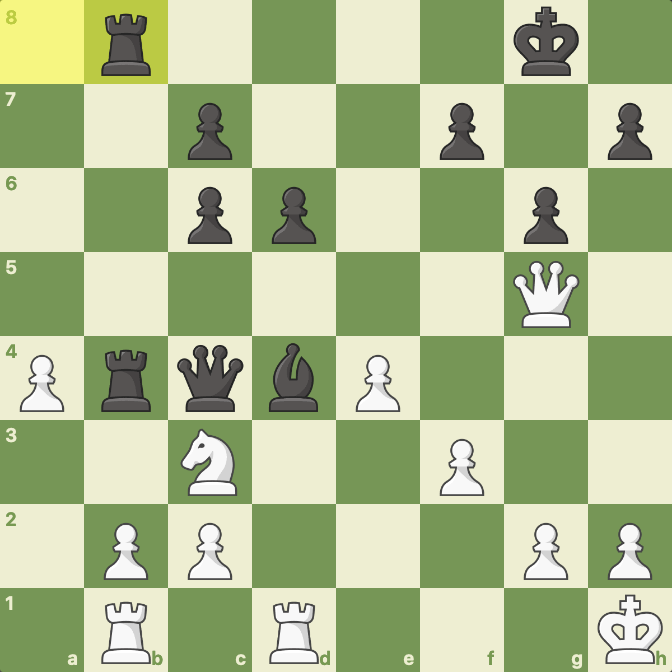
Capablanca won this game in a memorable fashion after accepting doubled c-pawns early in the game. Remember: doubled pawns can be a strength or a weakness; it all depends on the specific position—some players enjoy playing against doubled pawns, while others enjoy playing with them! What is important is that you can recognize doubled pawns and determine if they are strong or weak.
Test
Now that you know what doubled pawns are and why they are important, let's see if you can recognize them and determine if they are weak or strong. In the following position from the Trompowsky Attack, where are the doubled pawns? Is either of the doubled pawns weak?

Yes! Black's f-pawns are doubled, but it is safe to say that the f-pawns are not weak. Let's try one more. In the following position, where are the doubled pawns? Is either of the doubled pawns weak?

Yes! Black's c-pawns are doubled, and Black's c5-pawn is weak. In fact, White can win the c5-pawn in the position above after making the move Nxd7 and then capturing on c5 with the bishop.
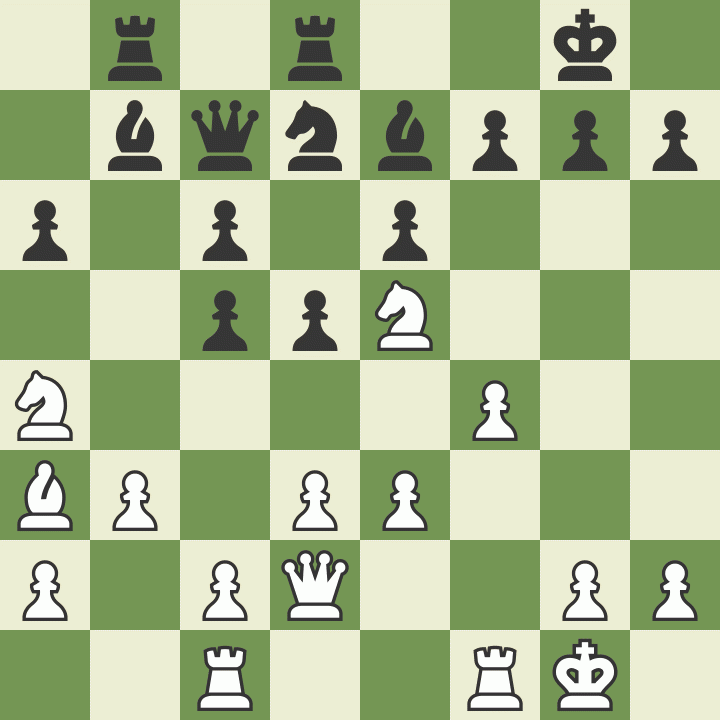
Conclusion
You now know what doubled pawns are, why they are important, and how to identify them! Check out this video explaining deep concepts about doubled pawns or this video lesson on winning with doubled pawns, both by GM Jon Ludvig Hammer. Use this new knowledge in your own games, and may your opponents' doubled pawns always be weak!







